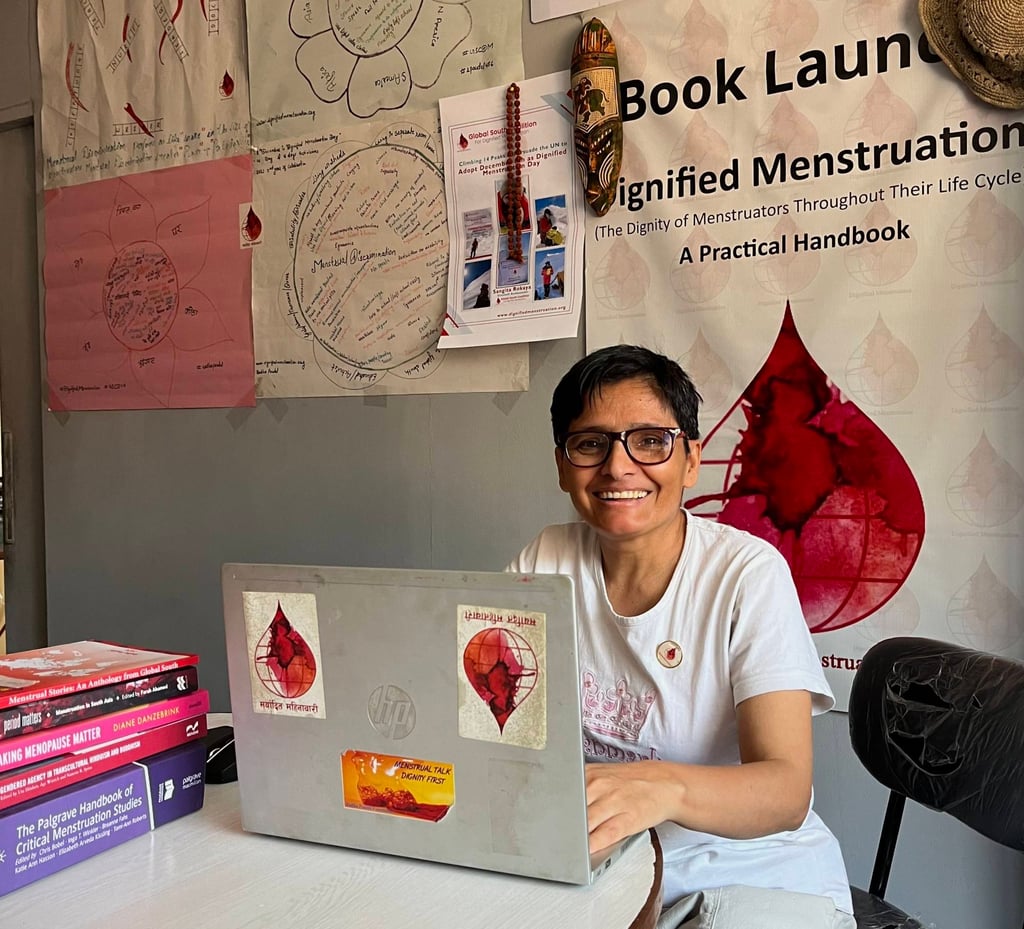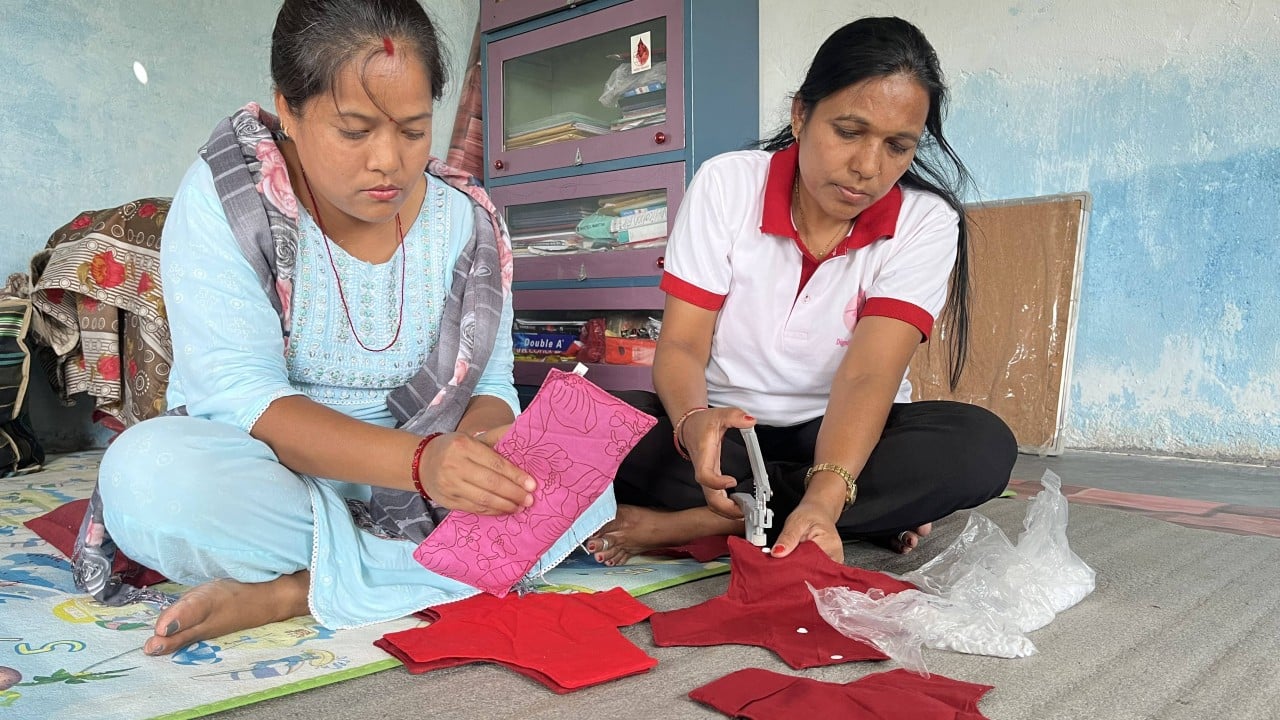In a quiet corner of southern Nepal, a small women-run factory is driving a growing movement to replace conventional menstrual pads with biodegradable alternatives – part of grass roots efforts to protect women’s health and the environment while dismantling entrenched taboos around menstruation.
Advertisement
The Miteri Jaibik Pad Udhyog (Miteri eco-friendly pad factory) in Chitwan district’s Gunjanagar has been manufacturing single-use biodegradable pads and reusable cloth pads since 2017, dispelling perceptions that such products are either costly or unhygienic.
Called Miteri – or “chosen kinship” in Nepali – the pads offer women healthier choices while raising awareness about the high environmental footprint of disposable non-biodegradable pads and encouraging what some advocates call “green menstruation”.
“I grew up seeing women use unhygienic cloths during menstruation,” said Radha Paudel, a nurse turned advocate for dignified menstruation, who started the pad factory along with Chitwan-based Active Women’s Forum for Justice. “I always wanted to start a social enterprise that upheld a menstruator’s dignity, that is good for the planet and also affordable.”

That philosophy is put into practice inside a tin-roof factory, where a single machine produces about 8,000 pads daily. They are made using pinewood pulp sheet and cotton, with bioplastic packaging, ensuring the entire product is biodegradable.
Advertisement

